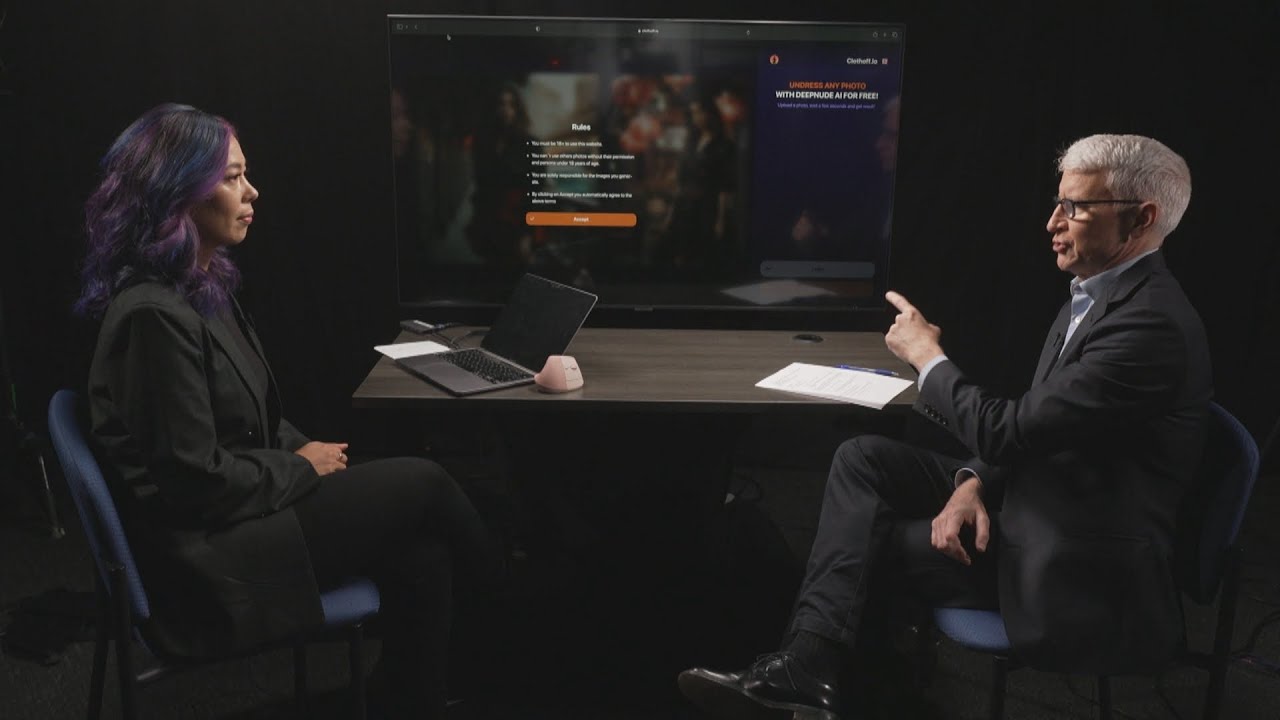The 60 Minutes segment addresses the growing issue of AI-generated fake nude images, particularly affecting minors, through easily accessible “nudify” websites, highlighting the case of 14-year-old Franchesca Mani, who became a victim of such manipulation. The segment calls for urgent legal reforms and stronger policies to protect victims and hold offenders accountable, emphasizing the need for comprehensive frameworks to combat the exploitation of minors through these technologies.
The 60 Minutes segment highlights the alarming issue of AI-generated fake nude images, particularly affecting minors, through “nudify” websites and apps. The story centers around 14-year-old Franchesca Mani, who discovered that her image had been manipulated into a nude photo using such a site while she was in high school. This incident is not isolated; there have been nearly 30 similar cases reported in schools across the U.S. in the past 20 months, with many more globally. The segment emphasizes the ease of access to these websites, which are openly advertised and not hidden on the dark web, raising concerns about the lack of regulation and accountability.
Franchesca recounts the chaos that ensued when rumors spread about the existence of these doctored images. She and other girls learned they were victims when called to the principal’s office, highlighting a significant violation of their privacy. The principal’s subsequent email to parents acknowledged the situation but left many, including Franchesca’s mother, feeling that the school’s response was inadequate. The minimal disciplinary action taken against the boys involved, including just a one-day suspension, further fueled frustrations among the victims and their families.
The segment also delves into the operations of nudify websites like “cloth off,” which allow users to upload photos and create realistic-looking nude images. These sites often lack proper age verification and can easily be accessed by anyone, including minors. The manipulation of images is facilitated by AI technology, and the segment reveals how these sites encourage users to share their creations on social media, often involving underage individuals. This raises serious concerns about the non-consensual creation and distribution of explicit content involving minors.
Experts interviewed in the segment express the urgent need for legal reforms to address the gaps in current laws regarding AI-generated images. While federal child pornography laws exist, they may not adequately cover all instances of AI-generated nudes, particularly if they do not depict what is legally defined as sexually explicit conduct. The segment highlights the challenges faced by victims and their families in seeking justice and the slow response from tech companies when such content is reported.
In response to these issues, Franchesca and her mother have been advocating for stronger policies in schools and have worked with lawmakers to introduce legislation aimed at combating the misuse of AI in creating explicit images. The “Take It Down Act,” which has made progress in Congress, seeks to impose criminal penalties for sharing AI-generated nudes and mandates that social media companies act swiftly to remove such content. The segment concludes with a call for comprehensive legal frameworks to protect victims and hold offenders accountable, emphasizing that without appropriate laws, the exploitation of minors through these technologies will continue to pose a significant threat.
